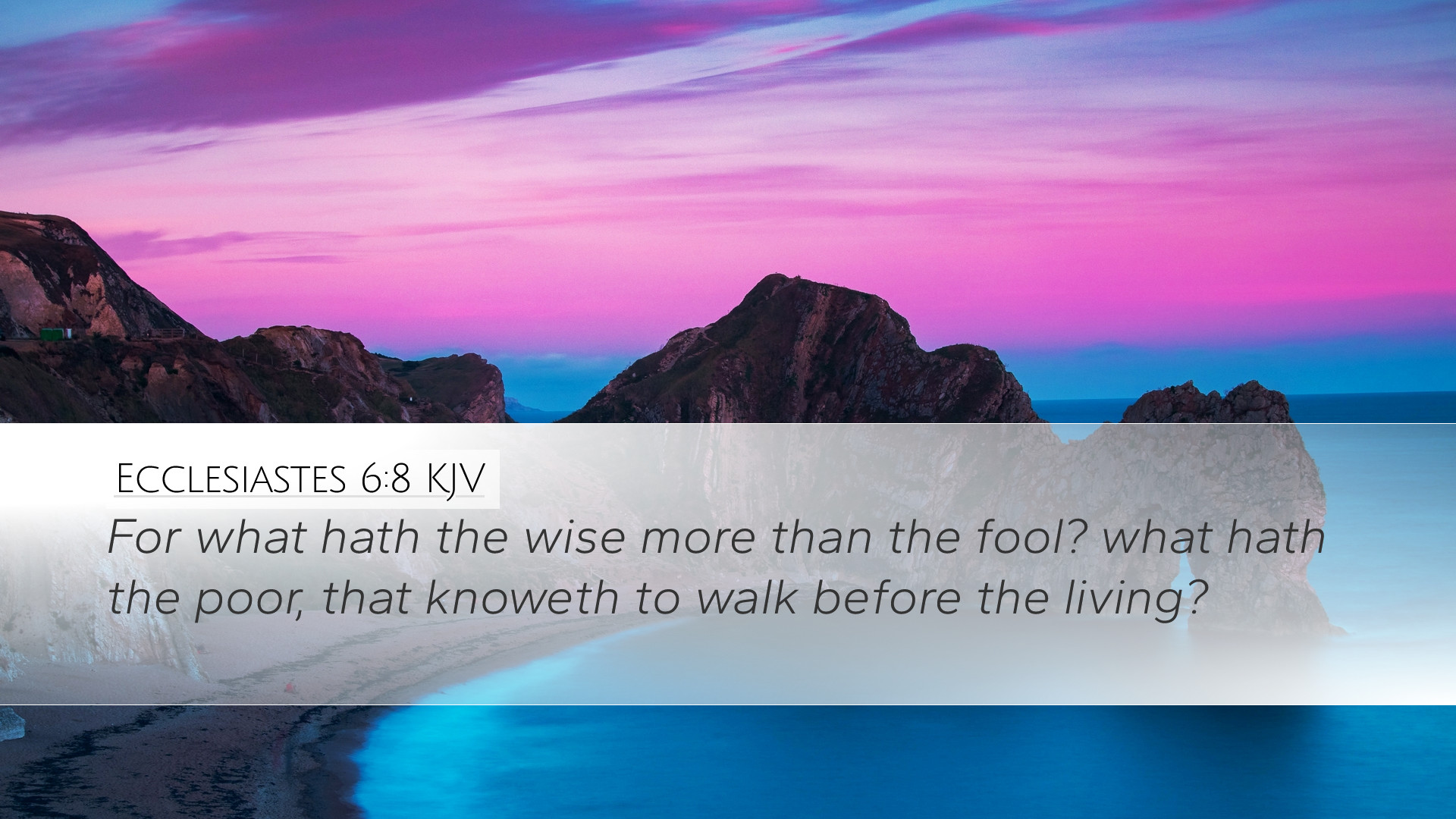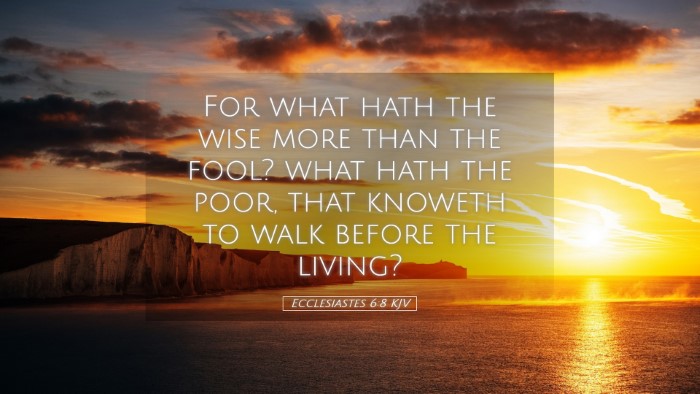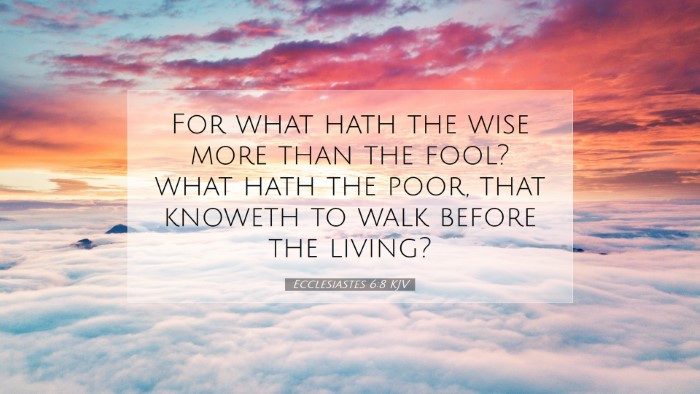Old Testament
Genesis Exodus Leviticus Numbers Deuteronomy Joshua Judges Ruth 1 Samuel 2 Samuel 1 Kings 2 Kings 1 Chronicles 2 Chronicles Ezra Nehemiah Esther Job Psalms Proverbs Ecclesiastes Song of Solomon Isaiah Jeremiah Lamentations Ezekiel Daniel Hosea Joel Amos Obadiah Jonah Micah Nahum Habakkuk Zephaniah Haggai Zechariah MalachiEcclesiastes 6:8
Ecclesiastes 6:8 KJV
For what hath the wise more than the fool? what hath the poor, that knoweth to walk before the living?
Ecclesiastes 6:8 Bible Commentary
Ecclesiastes 6:8 - A Commentary
Verse Text: "For what has the wise more than the fool? What has the poor, that knows to walk before the living?" (Ecclesiastes 6:8, KJV)
Introduction
The book of Ecclesiastes, attributed to Solomon, delves into profound existential questions and reflections on life’s meaning. Ecclesiastes 6:8 presents a striking contrast between the wise and the foolish, as well as considerations of wealth and knowledge. This commentary seeks to unpack the implications of this verse, drawing insights from renowned public domain commentaries.
Understanding the Verse
This verse asks critical rhetorical questions that challenge the reader to consider the relative value of wisdom, foolishness, and material wealth. At its core, it emphasizes the commonality of human experience, irrespective of one’s intellectual or economic status.
Insights from Commentaries
1. Matthew Henry’s Commentary
Matthew Henry notes that the questions posed in Ecclesiastes 6:8 reflect on the vanity of worldly distinctions. He emphasizes that wisdom does not inherently grant happiness or fulfillment, asserting that both the wise and the fool face life's fleeting nature. He states:
- "The wise man does not possess greater features than the fool if the wise man is not acting upon wisdom."
- "Riches and status do not offer true happiness; wisdom is often disregarded by those who chase after wealth."
2. Albert Barnes’ Notes
Albert Barnes provides clarity on the phrase "what has the wise more than the fool?" He posits that it interrogates the supposed advantages of wisdom in a world driven by the pursuit of pleasure and material gain. He comments:
- "In many instances, the wise man suffers through his awareness of the futility of life. In contrast, the fool often lives in ignorance, which might lead to a more carefree existence."
- "Both find themselves in the same life circumstances, illustrating the equalizing power of mortality."
3. Adam Clarke’s Commentary
Adam Clarke deepens the exploration by questioning the true benefits of wisdom when compared to ignorance. He argues that knowledge without application leads to despair. Clarke remarks:
- "Knowledge alone, when severed from practical living, results in no advantage. Therefore, the true challenge is not in knowing but in acting wisely before God."
- "The verse illustrates human beings' ultimate commonality—the fragility of life diminishes their differences."
Theological Implications
This verse challenges readers to reconsider their pursuit of wisdom and wealth. It implies that true wealth lies in how one walks before “the living” — a reference likely to God or to one's community. The focus is redirected from human achievement to one's relationship with God and others.
Practical Applications
- For Pastors: Encourage congregations to reflect on their priorities in life, emphasizing a relationship with God over material pursuits.
- For Students: Prompt discussions on the purpose of wisdom and how it is applied in daily life, beyond mere academic achievement.
- For Theologians: Explore the nature of wisdom in a postmodern context, questioning traditional views on education and knowledge.
- For Bible Scholars: Engage with the text critically, considering historical and cultural contexts of wisdom literature.
Conclusion
Ecclesiastes 6:8 invites us to reflect on what defines true wisdom and prosperity in life. As various commentaries illustrate, the essence of existence transcends the mere accumulation of knowledge or wealth. Instead, it prompts a deeper examination of how one lives and interacts with the divine and their fellow beings.


